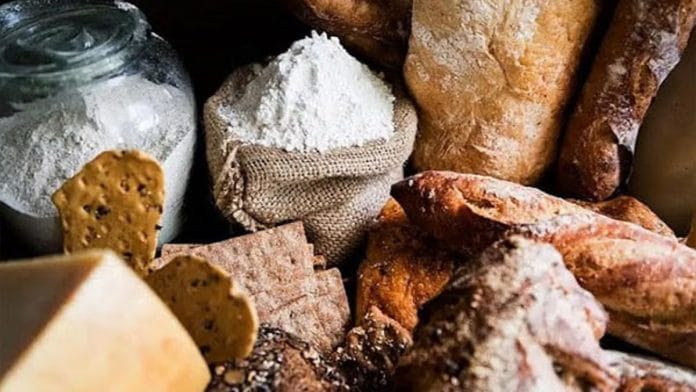Inflammation is part of the body’s healing process. It is triggered by white blood cells that play a crucial role in our immune system’s response to disease and injury. In an acute infection, the reaction is short and immediate. But when it comes to chronic illnesses or autoimmune diseases, our body keeps attacking itself—resulting in constant inflammation. And if unchecked, inflammation can cause cancer, heart problems, rheumatoid arthritis and obesity.
Certain kinds of foods can also aggravate inflammation. Such items impact gut health and make us feel sluggish, bloated and uneasy. Chronic inflammation results in decreased absorption of nutrients and affects digestive health. Patients also deal with swelling, flaking of skin and other physiological reactions due to eating inflammatory foods.
While modern medicine is well-equipped to handle the acute symptoms such as pain, swelling, flare-ups due to inflammation, the foundation of treatment lies in shifting your lifestyle for long-term change. One sure-fire approach to maintaining a harmonious equilibrium is to move to an anti-inflammatory-led lifestyle.
My patient was flabbergasted when she was advised to follow an anti-inflammatory diet. The idea of dividing food into such categories left her wondering about the rationale behind it. But watching what you eat can work wonders. An anti-inflammatory diet maintains your physical and mental health. When it comes to your skin, this diet substantially improves its freshness, health, and radiance.
Also read: The things they do for sex? These Aussie marsupials give up sleep in mating season & end up dead
A to Z of anti-inflammatory: know your foods
To make informed and healthy decisions, it is best to start with basics. In this case, knowing which foods contribute to inflammation and what ones help reduce it is important. Once you have that down, you can choose what to cut down or what to add in your diet.
Foods that cause inflammation:
- Refined sugars: Candies, chocolates, soft drinks, cakes, cookies and similar items are a no-go.
- Fried food: Potato chips, french fries, samosas, fritters, etc. can increase the trans fats in the body, which leads to inflammation.
- Refined carbohydrates: Bread, pastry, pasta, and rice among other such items can lead to inflammation.
- Excessive alcohol consumption:Alcohol in uncontrolled amounts can disturb the gut bacteria, subsequently leading to inflammation.
Foods that reduce inflammation:
- Nuts such as walnuts, pecans and pine nuts are recommended in an anti-inflammatory diet. Consuming them in moderation is a good start.
- Fruits and vegetables
- High fiber, whole grain carbohydrates such as quinoa, oats and wheat in moderation.
- Beans and legumes
- Low-fat or fat-free dairy products
- Olive oil as the primary source of fat
If you are ever in doubt, just follow the Mediterranean diet and you’ll have a nutritionally balanced meal that aligns with the anti-inflammatory diet guidelines.
In addition to following an anti-inflammatory diet, understanding the role of gluten in your diet can also be crucial for managing skin health.
Good for skin
Chronic inflammation serves as a catalyst for common skin concerns, including premature aging, acne, pigmentation, as well as autoimmune diseases such as psoriasis, eczema, acne vulgaris, among others. You know you’re struggling with inflammation if your skin is red, flaky, bumpy, has swelling, red patches or itching. Although inflammation isn’t the only causative factor, it can aggravate the above-mentioned symptoms. By regulating the level of inflammation in our body, we can make our skin look dewy and fresh. You can bring in reinforcement through skincare that complement the diet.
Hyaluronic acid: Using products with this ingredient promotes deep hydration, lubrication and even improves metabolic process for the skin
Face masks with a turmeric base: Create a turmeric-based face mask by mixing half a cup of chickpea flour (besan) with two tablespoons of turmeric powder (haldi), along with ghee and water. Bring it to a paste consistency, apply a thin, even layer on your face and wait for five minutes. Remove the mask by washing with cold water.
Washing your face with ice cold water: It reduces puffiness and boosts circulation.
Also read: Frequent flyers need extra care for their skin. Here’s what to do in ‘flight mode’
Change in lifestyle
An anti-inflammatory diet improves blood circulation, resulting in better skin, better nails and better hair. The way to fully embrace the anti-inflammatory life is to take it slow. Start by swapping food items in your regular meals. Many of our favourite foods tend to rank high on the inflammation index, so let’s make healthy choices that your gut and skin will thank you for.
While everyone can experience positive results from it, I particularly recommend it for those who have chronic illnesses such as psoriasis and eczema.
Dr Deepali Bhardwaj is a dermatologist, anti-allergy specialist, laser surgeon and internationally trained aesthetician. She tweets @dermatdoc. Views are personal.
(Edited by Ratan Priya)







Thanks doc
Excellent info… Dr. Dipali is the best